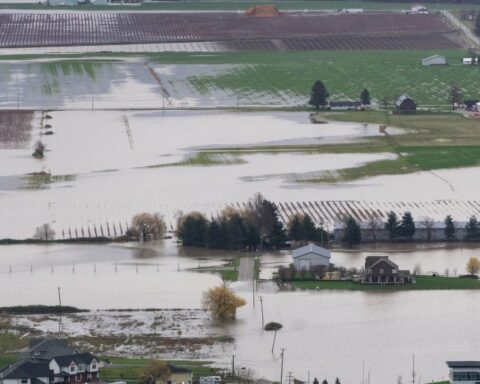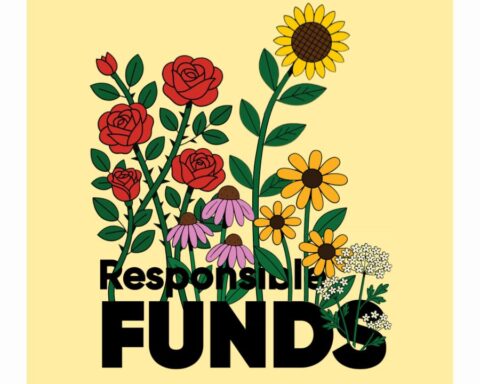The path to a cleaner economy is well-populated by net-zero targets, but credible plans to achieve those goals have remained elusive. Now, a finance-driven initiative called Business Future Pathways wants to help Canadian companies do what’s needed to get fossil fuels out of their business models.
From the perspective of the urgency of the climate crisis, progress toward real transition plans has been agonizingly slow. CDP, a prominent climate disclosure platform, has found that while a quarter of the companies it tracks have 1.5°C-aligned transition plans, only 2% provided enough information to judge their credibility. And that number “falls to less than 1% when all companies reporting environmental data are considered,” Bloomberg reports.
Transition planning has been hampered by the slow rollout of two key regulatory components: mandatory climate-risk reporting by companies, or “disclosures,” and official definitions for all the relevant terms, or what is sometimes called a “green taxonomy.” Each are required not only to prevent greenwashing, but also to give investors, lenders and insurers the information they need to keep pace as economies evolve with the changing climate.
Delays create need for a new approach
After years of debates about what counts as sustainable or what should be included in a transition fund, the Canadian government announced last October that it would build and implement a taxonomy for transition investments. During his election campaign, Prime Minister Mark Carney promised that his government would finalize and implement the guidelines by fall 2026.
Mandatory climate reporting, meanwhile, suffered a major setback in April when the Canadian Securities Administrators (CSA) opted to pause work on developing the regulations, following a similar move by the U.S. Securities and Exchange Commission (SEC) in March.
We’ve been focused on the data on emissions, not the plans on how to reduce those emissions.
– Marie-Josée Privyk, ESG disclosure coach
Climate-risk disclosures are nonetheless in high demand, and Gary Gensler, the former U.S. SEC chair, has called them the “bare minimum” to help investors. Canada already has voluntary disclosure standards, which the Canadian Sustainability Standards Board (CSSB) finalized in December, and which many expected the CSA to make compulsory.
“These standards are there for companies to adopt . . . And that’s a crucial step. But that takes us only so far. For the benefits of the hard work that was done to develop these standards, we really do need to see adoption across the country,” CSSB chair Wendy Berman said at the Sustainable Finance Summit in Montreal in May.
Marie-Josée Privyk, an ESG disclosure coach in Montreal, says broader change won’t happen without mandatory requirements. “We have gotten as far as we were going to get with voluntary disclosures,” she says.
The Business Future Pathways strategy
Not wanting to wait even longer for companies to make serious transition plans, leading organizations and key figures from Canada’s sustainable finance sector have formed Business Future Pathways, a program to make transition planning an authentic reality, despite insufficient regulatory support.
We’re trying to take transition planning from what is currently seen as a compliance exercise to one that is centred more on creating an engine of future growth and prosperity for each company.
– Jonathan Arnold, director of sustainable finance, Canadian Climate Institute
Rather than lobbying or shareholder activism, the initiative focuses on providing concrete steps to help businesses pick up the pace and move past the hurdles. Barbara Zvan, president and CEO of the University Pension Plan Ontario (UPP), is leading the effort.
There are two parts to achieving this, says Jonathan Arnold, director of sustainable finance at the Canadian Climate Institute, which is responsible for the bulk of the research that will underpin guidance provided by Business Future Pathways.
The first is to get Canadian financial institutions on the same page about what good, credible transition plans look like. This matters because companies need to be properly recognized for reducing their greenhouse gas emissions and detaching from fossil fuels, as significant investment and financing opportunities will be tied to those changes. “This won’t involve creating a new standard but rather will boil down the essential components from existing international frameworks to what matters most to Canadian investors,” Arnold says.
While mandatory disclosures have been delayed for most companies, Canada’s financial institutions are already required to report on their exposure to climate risks, as well as their contributions to emissions, under rules from the Office of the Superintendent of Financial Institutions that come into effect this year.
By agreeing on what information they want and how it should be shared, the big banks, pension funds and insurers can create the stable ground that companies need to ensure that their transition plans are credible enough for investors who don’t want to be overly exposed to climate risks in their portfolios.
Once that piece is in place, the next step is convincing Canadian businesses to accept the help that’s offered by Business Future Pathways and then go ahead and do their transition plans with confidence, Arnold says.
Related
How climate risk disclosure became a battleground for the clean economy
‘ESG tourists’ are leaving, but sustainable funds are still growing in Canada
RBC’s climate retreat sparks debate over anti-greenwashing law
The arrival of Business Future Pathways has not been universally celebrated in sustainable finance circles, and it will still have to prove its worth. Some see it as yet another think tank, though Arnold denies that the term applies. Think tanks create more delay than value, according to Chris McDermott, a former Canadian climate negotiator at the United Nations. “Shareholders have far more clout in pressing for reporting than some think tank does,” he argues.
A forward-facing mindset
While efforts to establish mandatory climate-reporting rules have preoccupied the sustainable finance sector, transition planning presents a different outlook on climate mitigation and adaptation. “We’ve been focused on the data on emissions, not the plans on how to reduce those emissions,” Privyk says.
Disclosure is a backward-looking accounting exercise where companies report their historical data, Arnold explains. While disclosure is considered foundational for transition plans, it doesn’t do the work of strategizing how to pivot businesses toward sustainable models.
“We’re trying to take transition planning from what is currently seen as a compliance exercise to one that is centred more on creating an engine of future growth and prosperity for each company,” Arnold says. The work of Business Future Pathways is to shift the conversation more toward profitability and competitiveness, he argues. Credible transitions will have “a material impact on a business’s ability to survive and remain profitable.”
Mark Mann is a Montreal-based journalist and the associate editor at Corporate Knights.
Get all our stories in one place, every Wednesday at noon EST.The Weekly Roundup







